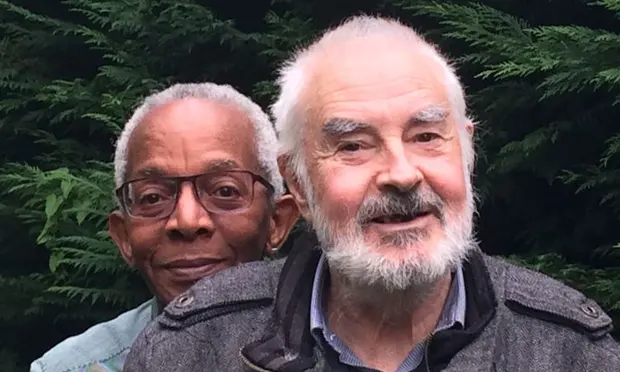In a shocking revelation, Ted Brown, civil partner of the late LGBTQ activist Noel Glynn, has come forward to expose a distressing case of homophobic abuse that occurred in a care home. Brown disclosed that Glynn was subjected to physical violence, verbal taunts, and mistreatment by care home staff, leaving him with visible injuries and trauma. Furthermore, the staff refused to acknowledge their relationship, referring to Brown as Glynn’s “friend” or even “father.” This incident raises alarming concerns about the safety and well-being of older members of the LGBTQ community in care settings.
According to Brown, two whistleblowers stepped forward, confirming his suspicions of staff members assaulting Glynn due to his sexuality. One harrowing incident involved Glynn being questioned about his sexual orientation and subsequently dragged into his room, causing distress to other residents who overheard the disturbance. Although the care home suspended the suspected staff members for a brief period, they were eventually allowed to return, albeit on a different floor.
Glynn had expressed his dissatisfaction with the care home, disclosing to a social worker in January 2019, “I don’t like it here, they beat me up.” Shockingly, the police took no action after Brown reported the abuse, while a social worker acknowledged that Albany Lodge was unsuitable and recommended his relocation. Despite these concerns, Glynn remained in the care home for an additional nine months.

Brown, who had power of attorney over Glynn’s affairs, initiated a civil case against Lambeth council on behalf of Glynn, who was suffering from dementia. As part of a proposed settlement, the council acknowledged that Glynn’s placement at Albany Lodge from December 2018 to October 2019 was not in his best interests and offered £30,000 in compensation. However, payment has yet to be received.
The case of Glynn and the broader issue of homophobic abuse in care homes highlight the challenges faced by older LGBTQ individuals. Brown, a veteran of the Gay Liberation Front and one of the organizers of the UK’s first Pride event in 1972, expressed concern that older members of the LGBTQ community feel compelled to hide their true identities when entering care homes due to fears of mistreatment.
Homophobic abuse within care settings has seen a disturbing rise, as reported by Eileen Chubb, a former care worker and whistleblower from Compassion in Care. Chubb’s organization has received 423 reports of homophobic abuse in care homes across the UK, suggesting that these incidents are likely more widespread than currently known. Such acts of discrimination not only violate basic human rights but also demonstrate a systemic issue within the care system that urgently requires attention and reform.
In response to these revelations, a spokesperson for Lambeth council stated that they thoroughly investigated the allegations and shared the outcome with the police for follow-up action. Additionally, the council supported Glynn’s relocation to a more suitable facility in 2019. Acknowledging the wider problem of homophobic discrimination within the UK care system, Lambeth council assured their commitment to addressing this issue.
The Future Care Group, which owns Albany Lodge, emphasized their dedication to the health and well-being of residents, claiming that they worked closely with authorities during the investigation of Mr. Glynn’s case. The organization stated that mandatory diversity and equality training is provided to all staff, aligning with their core values.
The distressing case of Noel Glynn highlights the urgent need for comprehensive measures to combat homophobic abuse and discrimination within care homes. It is imperative to ensure the safety and dignity of all individuals, regardless of their sexual orientation or gender identity, particularly in environments where they are vulnerable and seeking support.

